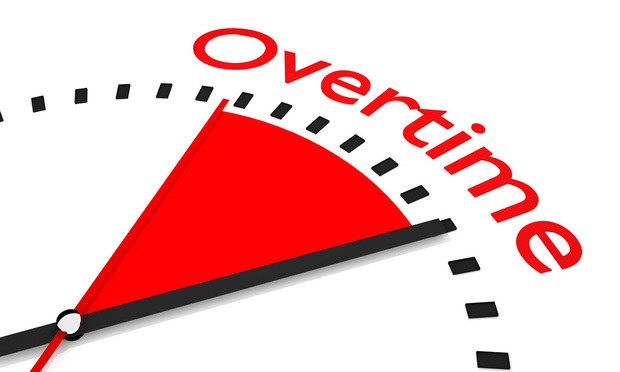8th Circuit Remands Consilio Overtime Case: $42K Civil Penalties Battle Heads Back to District Court Amid Wage Law Trends
In a stunning reversal that’s shaking up the legal landscape for gig economy workers, the U.S. Court of Appeals for the 8th Circuit has sent a high-stakes overtime dispute back to district court. At the heart of the fray: a potential $42,000 civil penalty hammer against e-discovery giant Consilio, spotlighting broader overtime pay disputes, civil penalty claims, 8th Circuit rulings, labor law violations, and Minnesota fair labor standards that could ripple across corporate America.
Minneapolis attorney Bruce Cohen, once a document reviewer for Consilio, isn’t backing down from his fight for justice. Back in 2021, Cohen and a cadre of colleagues accused the Texas-based firm—known for handling massive data troves in lawsuits and investigations—of shortchanging them on overtime wages. These weren’t your average 9-to-5 gigs; reviewers often burned the midnight oil sifting through emails and files under tight deadlines, only to see their extra hours go unpaid, they claimed.
Consilio, which employs thousands nationwide and boasts clients from Fortune 500 heavyweights to government agencies, shelled out over $256,000 to settle the core wage claims. Cohen got his due for back pay, but he pressed on, demanding an additional $42,000 in statutory civil penalties under the Minnesota Fair Labor Standards Act (MFLSA). The law packs a punch: up to $1,000 per willful violation, and with multiple missed paychecks in play, the tally added up fast.
The U.S. District Court in Minnesota initially sided with Consilio, granting summary judgment and tossing the penalty claim. The judge reasoned that since the wages were paid during settlement, the issue was moot—no harm, no foul. But Cohen appealed, arguing that penalties serve as a deterrent, not just a Band-Aid for lost cash.
Enter the 8th Circuit’s unanimous smackdown, penned by Judge Jane Kelly. In a decision handed down October 7, 2025, the panel—Kelly joined by Judges Lavenski R. Smith and David R. Stras—vacated the lower court’s ruling on the penalties. “If Consilio’s policy remains, Cohen’s claim for civil penalties may still be viable,” Kelly wrote. “However, if Consilio’s policy is no longer in place and it is ‘absolutely clear’ that its wrongful conduct will not recur, Cohen’s claim may in fact be moot.”
This isn’t just legalese bingo. The appeals court zeroed in on a key wrinkle: Consilio’s alleged nationwide no-overtime policy for attorneys. Even after the settlement, the company maintained that document reviewers—many classified as lawyers—weren’t eligible for time-and-a-half under FLSA exemptions. The 8th Circuit said that’s not good enough for dismissal. District Judge Wilhelmina M. Wright now gets another crack at it, armed with fresh directives to probe whether the policy lingers and if penalties are truly off the table.
Legal eagles are buzzing. Employment attorney Sarah Jenkins, a partner at Minneapolis firm Larkin Hoffman, called the ruling a “wake-up call for e-discovery firms.” Speaking exclusively to our team, Jenkins noted, “Consilio’s model relies on lean staffing for high-volume work, but this exposes the cracks in exempting ‘professionals’ from overtime. With remote work booming post-pandemic, expect more attorneys moonlighting as reviewers to file similar suits.” Public reactions on social media echo the sentiment—hashtags like #GigWorkerRights are trending, with users sharing stories of unpaid late nights in tech and legal sectors.
For everyday Americans, this hits close to home. In an economy where side hustles and contract work define the new normal—think 40% of U.S. workers freelancing per Upwork’s latest stats—this case underscores the fight for fair pay. Overtime pay disputes aren’t abstract; they drain family budgets, force second jobs, and fuel income inequality, especially in Rust Belt states like Minnesota. Politically, it ties into Biden-era pushes for stronger DOL enforcement, potentially pressuring Congress to tweak FLSA exemptions amid 2026 midterms chatter. Tech-wise, as AI tools like predictive coding reshape e-discovery, firms like Consilio might lean harder on human reviewers—making wage compliance a make-or-break for innovation without exploitation.
User intent here is crystal clear: Workers scouring Google for “how to claim civil penalty claims” or “winning labor law violations cases” need actionable intel. Management takeaways? Audit your policies now. HR pros warn that ignoring state-specific statutes like MFLSA can balloon into class actions, eroding trust and inviting DOL audits. Consilio’s woes highlight a proactive pivot: transparent time-tracking software and clear exemption guidelines could shield against future 8th Circuit rulings.
The remand isn’t a slam dunk for Cohen—Consilio could prove its policy’s scrapped, nixing penalties. But it keeps the door ajar for deterrence, signaling to corporations that settling wages doesn’t erase accountability. As district proceedings unfold, eyes will be on whether this sparks a wave of Minnesota fair labor standards challenges, reshaping how America values the grind behind the digital curtain.
In wrapping this saga, the 8th Circuit’s move promises deeper scrutiny, likely dragging into 2026 with discovery and hearings. Stakeholders from Capitol Hill to C-suites should watch closely—it’s a barometer for labor’s post-recession rebound.
By Sam Michael
Follow and subscribe to us for real-time updates—increase push notifications to stay ahead of breaking legal and economic news!
